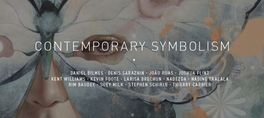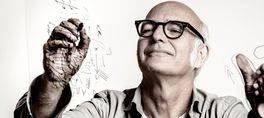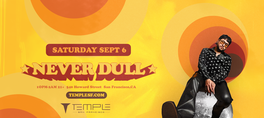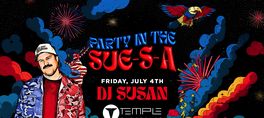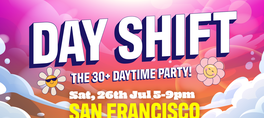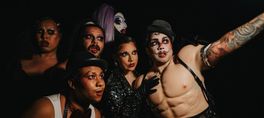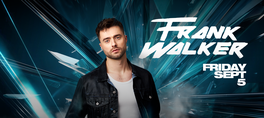M. Lockwood Porter and Faustina Masigat (($10 before/$15 day of show))
SEE EVENT DETAILSM. Lockwood Porter
The California-based singer-songwriter M. Lockwood Porter is part of a promising crop of up-and-coming Americana singer-songwriters. In the past four years, he has released three critically-acclaimed albums and performed all over the US, sharing the stage with acts like Patterson Hood, Lydia Loveless, John Moreland, Courtney Marie Andrews, American Aquarium, David Wax Museum, Samantha Crain, David Ramirez, and Aaron Lee Tasjan. He has performed at festivals like Outside Lands, Noise Pop, and CMJ.
Like Conor Oberst or Jeff Tweedy, Porter’s songs are equal parts traditional songcraft and indie rock attitude. Paste Magazine called Porter's 2016 album How To Dream Again "courageous and moving while eloquently capturing the zeitgeist". Glide Magazine said that How To Dream Again "flourishes with the high energy directness of Springsteen and the lasting vulnerability of Jeff Tweedy." How To Dream Again was tracked live in three days with minimal overdubs. The band – consisting of Porter, Peter Labberton, Bevan Herbekian, and Jeff Hashfield, and John Calvin Abney – sounds tight and heavy, like Tom Petty and The Heartbreakers if they’d cut their teeth at CBGB. The acoustic songs are raw and haunting, recalling Springsteen’s Nebraska.
While writing the songs on the album, Porter – who has degrees in English and American History from Yale University and taught English at an inner-city middle school for 4 years – rediscovered an interest in social justice and activism. Porter spent much of 2014 and 2015 years reading extensively – progressive writers like Noam Chomsky, Naomi Klein, Ta-Nehisi Coates, and Thomas Piketty – and took time to rethink what he wanted to write about. Porter also immersed himself in the works of topical songwriters – some obvious influences (Woody Guthrie, Bob Dylan) and others less so (Joe Strummer, Public Enemy’s Chuck D).
On the resulting album, How To Dream Again, M. Lockwood Porter blends the personal and political in a way that is courageous, moving, and representative of this historical moment. The album’s centerpiece is “Reach The Top”, a five-and-a-half minute dissertation critiquing the philosophy underpinning the American Dream, tying together its myriad consequences – isolation, materialism, depression, suicide, drug use, destruction of unions, college debt, gentrification, police brutality, media distortion, and American imperialism – using nothing but his voice, a guitar, and a harmonica. This song alone is a strong case that this California-based Okie transplant may be Guthrie’s closest modern heir.
“I can’t have a conversation with anyone my age right now without talking about things like inequality, gentrification, racial injustice, student debt, or climate change," Porter notes. "I wanted to make a piece of art that captures this time, where daily life is political.” Yet at its core, this album is a very personal statement from a thoughtful, daring young artist. “The album is called How To Dream Again because it’s about trying to change my priorities – from chasing dreams of individual success to dreaming about creating something bigger than myself."
Faustina Masigat
Frustrated by academia and emotionally raw from a breakup, Faustina Masigat stepped away from her peers in her mid-twenties. She had come to realize that her personal and artistic maturation had been stifled by her relationships and her overly angular traditional musical schooling. She knew she needed to spend more time alone, committed to a process of unlearning, before she could move forward. As she peeled back the rigid layers of her youth, she began to write the songs that, a few years later, would make up her debut record. Seeking honesty over perfection, her approach to composition became much more intuitive; seated in the natural expression of not only her emotional life, but also that of a spiritual life, an expression of her own femininity, and a means of self improvement through self reflection. She became obsessed with the old, forgotten, second-hand guitars she would find in the “As Is” section of local music shops, believing that magic and songs still lived in the beat-up wood. One album track, “Willie Nelson”, manifested, fully formed, from one of these guitars - an ancient, labeless individual that she called “Red”.
The songwriting on her self-titled debut is all at once heartbreaking, intelligent, meditative and elegant - centered around a voice that is difficult to attach genre to. There is a quiet intensity running through the world that Faustina creates: sweet and heavy, a touch of angst, brutally honest, smoldering. The album is understated, arranged as to allow Faustina’s effortless rapport with pedal steel player Tucker Jackson (The Minus 5, The Delines) to shine clearest. It’s a spacious and lush debut, with all of her vulnerabilities laid bare in songs hemmed together with fragile intimacy.
Faustina Masigat will be released on April 6th, 2018 via Mama Bird Recording Co. It was recorded by Ryan Lewis, mixed by Ben Nugent and mastered by Timothy Stollenwerk, all in Portland, Oregon.
M. Lockwood Porter
The California-based singer-songwriter M. Lockwood Porter is part of a promising crop of up-and-coming Americana singer-songwriters. In the past four years, he has released three critically-acclaimed albums and performed all over the US, sharing the stage with acts like Patterson Hood, Lydia Loveless, John Moreland, Courtney Marie Andrews, American Aquarium, David Wax Museum, Samantha Crain, David Ramirez, and Aaron Lee Tasjan. He has performed at festivals like Outside Lands, Noise Pop, and CMJ.
Like Conor Oberst or Jeff Tweedy, Porter’s songs are equal parts traditional songcraft and indie rock attitude. Paste Magazine called Porter's 2016 album How To Dream Again "courageous and moving while eloquently capturing the zeitgeist". Glide Magazine said that How To Dream Again "flourishes with the high energy directness of Springsteen and the lasting vulnerability of Jeff Tweedy." How To Dream Again was tracked live in three days with minimal overdubs. The band – consisting of Porter, Peter Labberton, Bevan Herbekian, and Jeff Hashfield, and John Calvin Abney – sounds tight and heavy, like Tom Petty and The Heartbreakers if they’d cut their teeth at CBGB. The acoustic songs are raw and haunting, recalling Springsteen’s Nebraska.
While writing the songs on the album, Porter – who has degrees in English and American History from Yale University and taught English at an inner-city middle school for 4 years – rediscovered an interest in social justice and activism. Porter spent much of 2014 and 2015 years reading extensively – progressive writers like Noam Chomsky, Naomi Klein, Ta-Nehisi Coates, and Thomas Piketty – and took time to rethink what he wanted to write about. Porter also immersed himself in the works of topical songwriters – some obvious influences (Woody Guthrie, Bob Dylan) and others less so (Joe Strummer, Public Enemy’s Chuck D).
On the resulting album, How To Dream Again, M. Lockwood Porter blends the personal and political in a way that is courageous, moving, and representative of this historical moment. The album’s centerpiece is “Reach The Top”, a five-and-a-half minute dissertation critiquing the philosophy underpinning the American Dream, tying together its myriad consequences – isolation, materialism, depression, suicide, drug use, destruction of unions, college debt, gentrification, police brutality, media distortion, and American imperialism – using nothing but his voice, a guitar, and a harmonica. This song alone is a strong case that this California-based Okie transplant may be Guthrie’s closest modern heir.
“I can’t have a conversation with anyone my age right now without talking about things like inequality, gentrification, racial injustice, student debt, or climate change," Porter notes. "I wanted to make a piece of art that captures this time, where daily life is political.” Yet at its core, this album is a very personal statement from a thoughtful, daring young artist. “The album is called How To Dream Again because it’s about trying to change my priorities – from chasing dreams of individual success to dreaming about creating something bigger than myself."
Faustina Masigat
Frustrated by academia and emotionally raw from a breakup, Faustina Masigat stepped away from her peers in her mid-twenties. She had come to realize that her personal and artistic maturation had been stifled by her relationships and her overly angular traditional musical schooling. She knew she needed to spend more time alone, committed to a process of unlearning, before she could move forward. As she peeled back the rigid layers of her youth, she began to write the songs that, a few years later, would make up her debut record. Seeking honesty over perfection, her approach to composition became much more intuitive; seated in the natural expression of not only her emotional life, but also that of a spiritual life, an expression of her own femininity, and a means of self improvement through self reflection. She became obsessed with the old, forgotten, second-hand guitars she would find in the “As Is” section of local music shops, believing that magic and songs still lived in the beat-up wood. One album track, “Willie Nelson”, manifested, fully formed, from one of these guitars - an ancient, labeless individual that she called “Red”.
The songwriting on her self-titled debut is all at once heartbreaking, intelligent, meditative and elegant - centered around a voice that is difficult to attach genre to. There is a quiet intensity running through the world that Faustina creates: sweet and heavy, a touch of angst, brutally honest, smoldering. The album is understated, arranged as to allow Faustina’s effortless rapport with pedal steel player Tucker Jackson (The Minus 5, The Delines) to shine clearest. It’s a spacious and lush debut, with all of her vulnerabilities laid bare in songs hemmed together with fragile intimacy.
Faustina Masigat will be released on April 6th, 2018 via Mama Bird Recording Co. It was recorded by Ryan Lewis, mixed by Ben Nugent and mastered by Timothy Stollenwerk, all in Portland, Oregon.
show less

